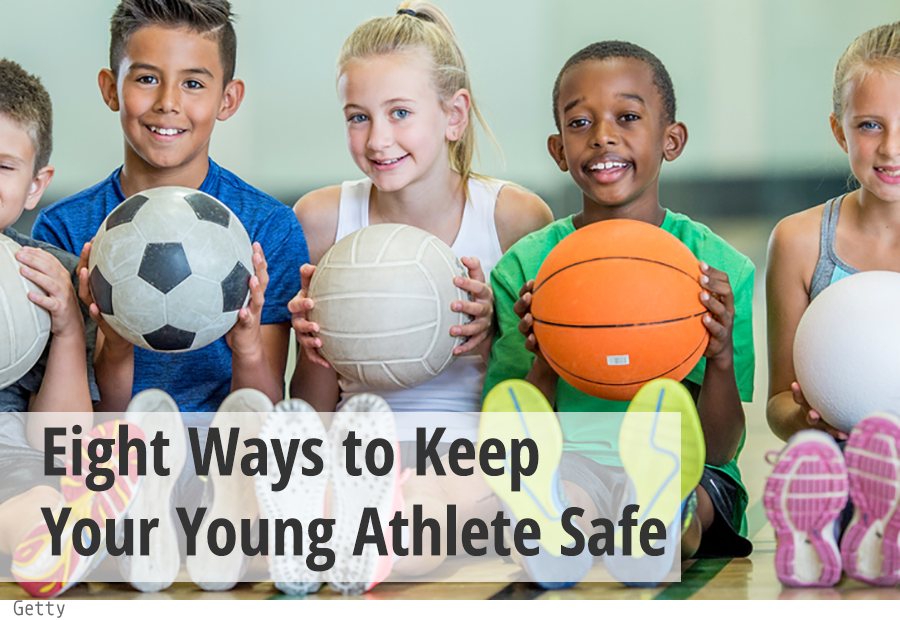It's a New Day in Public Health.
The Florida Department of Health works to protect, promote, and improve the health of all people in Florida through integrated state, county, and community efforts.
Youth Sports Safety Tips
August 17, 2018

As many parents already know, the beginning of the school year is a busy time for children who are getting ready to play organized sports. Playing sports is a great way for a child to stay fit and healthy, make friends, learn about teamwork, and develop a sense of personal satisfaction.
Here are eight tips to follow that can help keep your child safe and healthy before, during and after sports.
- See a health care provider. Before playing organized sports, make sure young athletes receive a pre-participation physical exam, or PPE, by a healthcare provider. This can help rule out any potential medical conditions that may place your child at risk.
- Follow a good diet. To offset the calories burned while playing sports, be sure you're child is getting a well-balanced, nutritional diet that provides enough energy. Make sure to adjust your child’s diet based on their specific health needs and level of activity.
- Stay hydrated. Encourage children to stay well hydrated by drinking plenty of water before, during and after practice or a game. Staying properly hydrated during can protect a person from a heat-related illness. Watch out for any signs of confusion, dizziness, or rapid breathing. These could be warning signs that your child is dehydrated.
- Warm-up properly. Stretching before practice and games can make a big difference by releasing muscle tension and helping prevent sports-related injuries, such as muscle tears or sprains. Make sure there is time set aside before every practice and game for athletes to warm up properly.
- Check your gear. It’s important that your child has the right protective equipment for the sport they are playing. Make sure the equipment fits properly and is in good repair, and it is worn for all games and practices.
- Be prepared for health emergencies. Make sure your school administration and coaching staff has your child’s emergency contact information, as well as any medical conditions and treatment. A fully-stocked first aid kit should be on hand at every game and practice. Parents and coaching staff should be certified in first aid and CPR. It’s important to know the signs and symptoms of a concussion.
- Be a good sport. Make sure your child knows that good sportsmanship is an important part of playing. Teach them to play by the rules, avoid aggressive behavior, use proper techniques in the game and stay out of fights.
- Take some time off. Children playing sports should get adequate sleep, and appropriate rest during games and practices to help avoid overuse injury. The American Academy of Pediatrics recommends kids take off at least one day per week and one month per year from training for a particular sport to allow the body to recover.
Follow these tips to help your child remain on top of their game and avoid a sports injury so they can keep playing the games they love and stay healthy for a lifetime.
About the Florida Department of Health
The department, nationally accredited by the Public Health Accreditation Board, works to protect, promote and improve the health of all people in Florida through integrated state, county and community efforts.
Follow us on Facebook, Instagram and Twitter at @HealthyFla. For more information about the Florida Department of Health please visit www.FloridaHealth.gov.



Connect with DOH